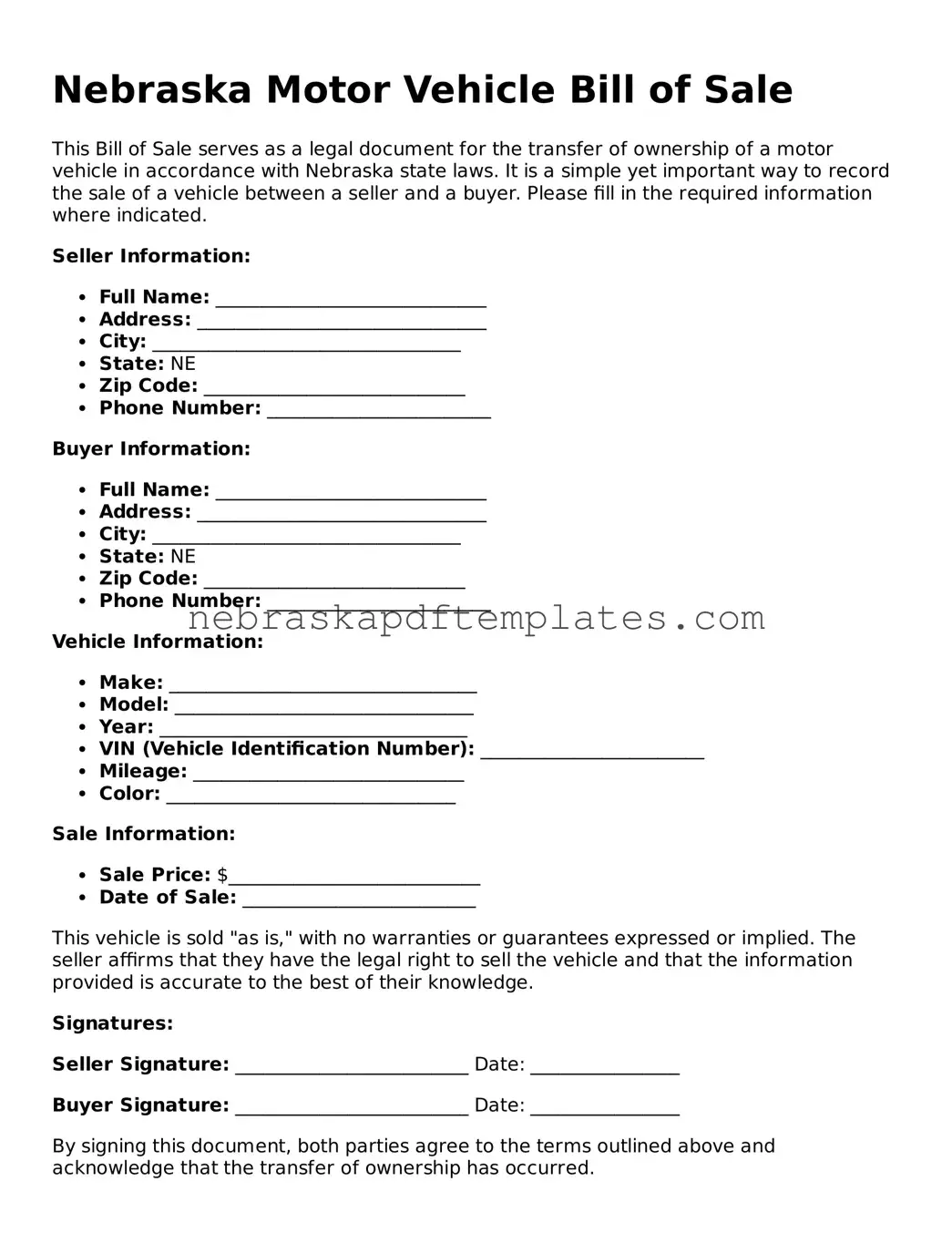Attorney-Verified Motor Vehicle Bill of Sale Document for Nebraska
The Nebraska Motor Vehicle Bill of Sale form is a legal document that records the transfer of ownership of a vehicle from one party to another. This form serves as proof of the transaction and includes essential details such as the vehicle's make, model, and VIN. To ensure a smooth transfer, it’s important to fill out the form accurately; click the button below to get started.
Access Editor Here

Attorney-Verified Motor Vehicle Bill of Sale Document for Nebraska
Access Editor Here
Finish your form now
Finalize Motor Vehicle Bill of Sale online — edit, save, and download effortlessly.
Access Editor Here
or
➤ Motor Vehicle Bill of Sale
